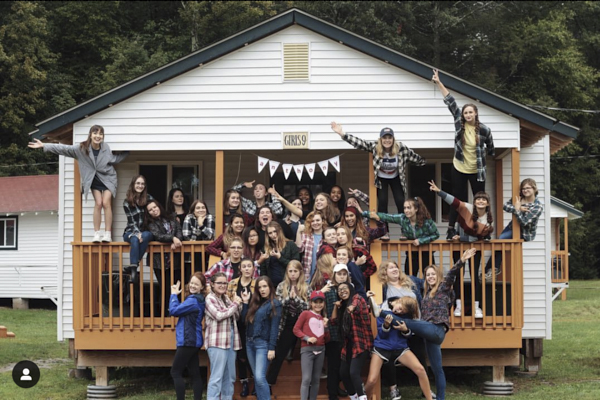Am I My Brother’s Keeper?
What does it take to be prepared “to shape and eventually to lead strategic institutions”? It takes courage and conviction. And courage is not something you pull out of a hat. It is learned here and now—one difficult conversation at a time.

I met recently with a group of House leaders. They expressed to me their frustration about the fact that a number of students are apparently unwilling to confront others when they see them committing a clear violation of community expectations. One leader observed, “If students are not willing to confront something they see happening in front of their eyes, the whole process breaks down.”She’s right, of course. She also underscores an aspect of our honor system that is difficult. On the one handThe problem is the second half of the Code—the piece about not turning a blind eye and being honor-bound to confront others. These responsibilities, admittedly, make our Code challenging to follow, no matter who you are or how morally astute you aspire to be.
Frankly, it’s much easier for me to turn a blind eye than to confront. Confrontation is uncomfortable and difficult. Who likes it? I don’t like to confront anyone—nor do I find it enjoyable to be confronted (you can ask my wife).
On top of this, our society tells us to mind our own business. Live and let live. Don’t interfere. Don’t impose your morality on someone else. Don’t judge
This is nothing new—the same sentiment seems to have plagued humankind from the start. When Cain killed Abel, God asked him, “Where is your Abel, your brother?” Cain retorted, “I don’t know. Am I my brother’s keeper?” In Cain’s mind, the answer was obviously, “No.”
That answer suits the spirit of our age. The hallmarks of our culture are relativism and indifference. There are no universal moral standards and, even if there are, why should I care if you choose another path? Few today have a sense of responsibility for, or loyalty to, others. I am no one’s keeper, no one is my keeper.
Some of us, embracing this line of thought, have adopted a murderer’s philosophy as our own. This philosophy leads us to do, or say, precisely nothing. We shirk our responsibility for our brother. We are guilty of what Eberhard Bethge, close friend and biographer for Dietrich Bonhoeffer, describes: “The sin of respectable people reveals itself in flight from responsibility.”
Why are we inclined toward flight? One reason is that confrontation involves sacrifice. Mark Whitacre, while an executive for Archer, Daniels, Midland (ADM), was involved in a massive price-fixing scheme. Whitacre was getting rich by making back-office agreements with other companies to artificially raise the price of products. Eventually Whitacre told his wife, Ginger, about what he was doing. She confronted him, saying, “That’s wrong. You can’t rip off people for millions of dollars. If you don’t tell theNot long thereafter, the FBI came to Whitacre’s house and spent two hours questioning him. He had been coached by ADM management in how to answer their queries. After a couple of hours, the FBI agents, satisfied with his responses, got up to leave. Then Ginger stepped into the room. She stated firmly, “He hasn’t told you everything.”
Exposed by his wife, Whitacre spent the next four hours telling the agents the whole truth. When Whitacre was interviewed at King’s a couple of years ago, he wept as he expressed his appreciation for Ginger: “I became the highest level executive in corporate history ever to become a whistleblower, all because my wife was willing to do what was right.” Eventually, Whitacre went to prison for eight years—because his wife was committed to doing what’s right, regardless of the cost. (You can download the full iIt takes courage to confront, and confrontation often comes with a cost. Some of us are willing, like Ginger Whitacre, to stand up and pay the price. Others are still learning to count the cost. Many acts of courage have taken place this semester, as students have confronted others for underage drinking, lying, visitation violations, and so on. I celebrate their courage. These students comprise the moral backbone of our community.
They also epitomize the character that is paramount to our mission. What does it take to be prepared “to shape and eventually to lead strategic institutions”? It takes courage and conviction. And courage is not something you pull out of a hat. It is learned here and now—one difficult conversation at a time.




